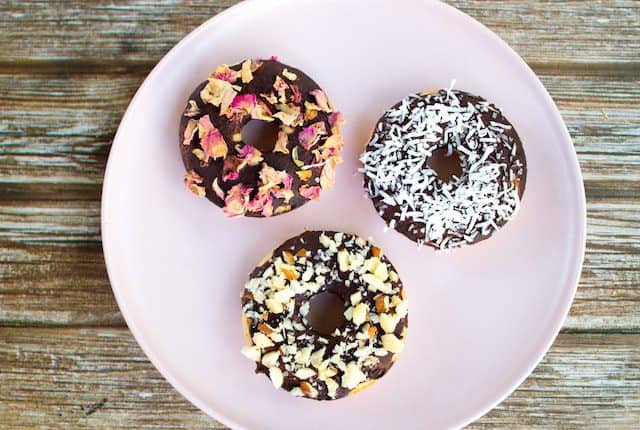Keto Diet-Would it be a good idea for you to try it?
The keto diet is a popular low-carb, high-fat diet that has been touted for its weight loss benefits and potential health benefits
In any case, a genuine ketogenic diet is unique. Not at all like other low-carb slims down, which center around protein, a keto plan fixates on fat, which supplies as much as 90% of day-to-day calories. Also, it’s not the sort of diet to attempt as a trial.
In this blog post, we will explore some common questions and concerns about the keto diet, including whether you can maintain weight loss, what the side effects are, what fruits you can and can’t eat, and more.
Find out MORE
View Safeguard yourself from the harm of ongoing inflammation. Couple running in the woods
How does the keto diet work?
Here are the fundamentals of keto: The eating routine expects to drive your body into utilizing an alternate sort of fuel. Rather than depending on sugar (glucose) that comes from carbs (like grains, vegetables, vegetables, and natural products), the keto diet depends on ketone bodies, a sort of fuel that the liver produces from putting away fat.
Consuming fat appears to be an optimal method for losing pounds. Be that as it may, getting the liver to make ketone bodies is interesting:
It expects that you deny yourself of starches, less than 20 to 50 grams of carbs each day (remember that a medium-sized banana has around 27 grams of carbs).
It regularly requires a couple of days to arrive at a condition of ketosis.
Eating a lot of protein can impede ketosis.
What do you eat?
Since the keto diet has such a high-fat prerequisite, devotees should eat fat at every feast. In a day-to-day 2,000-calorie diet, that could seem to be 165 grams of fat, 40 grams of carbs, and 75 grams of protein. Be that as it may, the specific proportion relies upon your specific necessities.
A few sound unsaturated fats are permitted on the keto diet — like nuts (almonds, pecans), seeds, avocados, tofu, and olive oil. Yet, soaked fats from oils (palm, coconut), grease, spread, and cocoa margarine are supported in high sums.
Protein is important for the keto diet, yet it doesn’t regularly separate between lean protein food varieties and protein sources high in soaked fat like meat, pork, and bacon.
And products of the soil? All organic products are rich in carbs, yet you can have specific natural products (normally berries) in little parcels. Vegetables (likewise rich in carbs) are confined to mixed greens (like kale, Swiss chard, and spinach), cauliflower, broccoli, Brussels sprouts, asparagus, ringer peppers, onions, garlic, mushrooms, cucumber, celery, and summer squashes. A cup of slashed broccoli has around six carbs.
Keto diet chances
A ketogenic diet has various dangers. The first spot on the list: it’s high in soaked fat. McManus prescribes that you hold soaked fats to something like 7% of your everyday calories on account of the connection to coronary illness. Furthermore, for sure, the keto diet is related to an expansion in “terrible” LDL cholesterol, which is additionally connected to coronary illness.
Other potential keto chances incorporate these:
Supplement lack. “If you’re not eating a wide assortment of vegetables, natural products, and grains, you might be in danger for lacks in micronutrients, including selenium, magnesium, phosphorus, and nutrients B and C,” McManus says.
Liver issues. With such a lot of fat to use, the eating routine could exacerbate any current liver circumstances.
Kidney issues. The kidneys assist with processing protein, and McManus says the keto diet might over-burden them. (The ongoing suggested consumption for protein midpoints is 46 grams each day for ladies, and 56 grams for men).
Stoppage. The keto diet is low in sinewy food sources like grains and vegetables.
Fluffy reasoning and emotional episodes. “The cerebrum needs sugar from sound starches to work. Low-carb diets might create turmoil and crabbiness,” McManus says.
Those dangers add up — so ensure that you converse with a specialist and an enlisted dietitian before truly endeavoring a ketogenic diet.
And different eating regimens?
The well-known low-carb slims down (like Atkins or Paleo) change to a genuine keto diet. In any case, they accompany similar dangers on the off chance that you get out of hand on fats and proteins and lay off the carbs. So for what reason truly do individuals follow weight control plans? “They’re all over the place, and individuals hear episodically that they work,” McManus says. Speculations about transient low-carb diet achievement incorporate lower hunger since fat consumes more slowly than carbs. “However, once more, we have hardly any insight into the long haul,” she says. “Furthermore, eating a prohibitive eating regimen, regardless of what the arrangement, is hard to maintain. When you continue a typical eating regimen, the weight will probably return.”
The Benefits of the Keto Diet: What You Need to Know
One of the main benefits of the keto diet is weight loss. By restricting carbohydrates and increasing fat intake, the body enters a state of ketosis, where it burns fat for energy instead of glucose. This can lead to significant weight loss.
In addition to weight loss, the keto diet may also improve blood sugar control. By limiting carbohydrates, the body produces less insulin, which can lead to lower blood sugar levels.
This can be especially beneficial for people with type 2 diabetes or those at risk of developing it.
Other potential benefits of the keto diet include improved cholesterol levels, reduced inflammation, and increased energy levels.
However, it’s important to note that more research is needed to fully understand the long-term effects of the keto diet.
If you’re interested in trying the keto diet, it’s important to consult with a healthcare professional first. The diet can be challenging to follow, and it’s important to make sure you’re getting all the nutrients your body needs.
However, with the right guidance and support, the keto diet can be a safe and effective way to improve your health.
Do you gain your weight back after going on keto?
While some people may regain weight after going off the keto diet, this is not necessarily a given.
The key to maintaining weight loss on keto is to make sure you are still eating a healthy, balanced diet and not overeating calories. Some tips for maintaining weight loss on keto include tracking your food intake, incorporating exercise into your routine, and being mindful of portion sizes.
What are the side effects of keto?
As with any diet, there can be some side effects when starting the keto diet. These can include headaches, fatigue, constipation, and bad breath.
However, most people find that these side effects go away after a few days or weeks on the diet. Some tips for managing side effects include staying hydrated, eating enough fiber, and incorporating more low-carb vegetables into your diet.
Can you eat fruit on keto?
While many fruits are high in carbs and not allowed on the keto diet, some fruits are lower in carbs and can be eaten in moderation.
Some of these include berries, avocados, and olives. It’s important to be mindful of the carb content in different types of fruit and to stick to small portions to stay within your daily carb limit.
Can you eat rice on keto?
Rice is not typically allowed on the keto diet, as it is high in carbs. However, there are some keto-friendly alternatives to rice that you can try, such as cauliflower rice or shirataki rice.
How fast do you lose weight on keto?
The rate of weight loss on keto can vary depending on several factors, including your starting weight, your activity level, and how strictly you follow the diet. On average, people tend to lose 1-2 pounds per week on keto.
Can I eat bananas on keto?
Bananas are not typically allowed on the keto diet, as they are high in carbs. However, there are some keto-friendly alternatives to bananas that you can try, such as berries or small amounts of pineapple or mango.
What do you eat during the first week of keto?
If you’re new to the keto diet, it can be helpful to have a sample meal plan for the first week to get you started. A typical day on the keto diet might include eggs and bacon for breakfast, a salad with chicken or tuna for lunch, and grilled salmon with roasted vegetables for dinner.
What fruits should I avoid on keto?
As mentioned earlier, many fruits are high in carbs and should be avoided on the keto diet. Some of the fruits to avoid include bananas, apples, grapes, and oranges.
What are the top 10 keto foods?
Some of the top foods to eat on the keto diet include meat, fish, eggs, cheese, nuts and seeds, low-carb vegetables, and healthy fats like avocado and coconut oil.
Is Greek yogurt keto?
Greek yogurt can be a good choice for the keto diet, as long as you choose a variety that is low in carbs. Plain, unsweetened Greek yogurt is a good option, as it typically contains around 5-6 grams of carbs per serving.
Is keto a healthy diet?
While the keto diet has been shown to have some potential health benefits, it is not necessarily a healthy choice for everyone.
Some potential risks of the keto diet include nutrient deficiencies, an increased risk of heart disease, and difficulty maintaining the diet long-term. It’s important to talk to your doctor.
In conclusion
The keto diet offers many potential benefits, including weight loss, improved blood sugar control, and more.
While more research is needed, the diet can be a safe and effective way to improve your health when done under the guidance of a healthcare professional.
Get free access here to learn more



